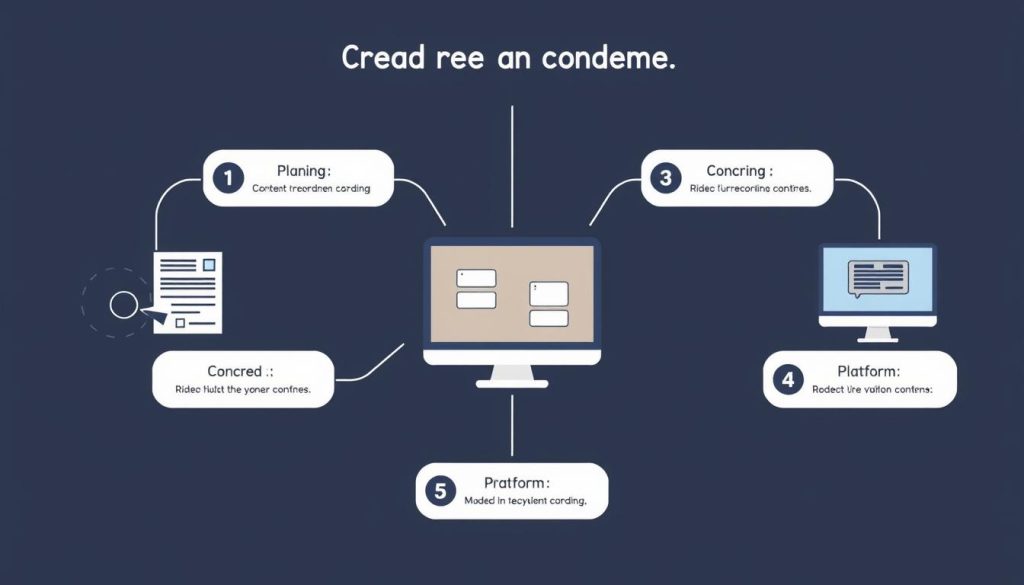Achieving professional independence is a dream for many. The freedom to choose your projects, set your hours, and build a business aligned with your values is a compelling prospect.
In today’s evolving economy, more professionals are turning to self-employment as a career path. To succeed, it’s essential to have the right skills and mindset.
Embracing self-employment opportunities can lead to greater job satisfaction and work-life balance. It allows you to work on projects that truly matter to you, fostering a sense of freedom and professional fulfillment.
Table of Contents
Key Takeaways
- Understand the diverse range of self-employment opportunities available across different industries and skill sets.
- Learn about the essential skills required to succeed as a self-employed professional.
- Discover how self-employment can provide the freedom to choose your projects and set your hours.
- Get an overview of the benefits and challenges of self-employment to make an informed decision.
- Understand how self-employment can lead to greater job satisfaction and work-life balance.
The Rise of Self-Employment in Today’s Economy
The rise of self-employment is a significant shift in today’s economy, driven by the desire for financial independence and flexibility. About 16 million Americans are self-employed, choosing this path for various reasons, including the freedom to choose their projects and the potential to earn income directly from clients.
Why More People Are Choosing Self-Employment
Self-employment offers numerous benefits, including the ability to manage one’s schedule and workload. This flexibility is particularly appealing to those who value work-life balance. Additionally, self-employment provides the opportunity to pursue projects that align with one’s passions and skills, potentially leading to higher job satisfaction.
The potential for higher income is another factor driving the growth of self-employment. In various fields, self-employed individuals can earn more than their employed counterparts by taking on multiple clients or projects.
Key Statistics on Self-Employment Growth
Recent statistics highlight the growth of self-employment across different industries and demographic groups. The data shows that:
- Self-employment has grown significantly in the tech industry, with more individuals offering services as freelancers.
- The average income for self-employed individuals varies widely by field, with some sectors offering higher earning potential.
- There is a notable trend towards self-employment among millennials and Gen Z, driven by the desire for financial independence and flexibility.
These trends indicate a shift towards more people managing their own careers and money through self-employment.
Benefits of Pursuing Self-Employment Opportunities
Self-employment offers a myriad of benefits, from financial independence to the freedom to choose your projects. This autonomy allows professionals to align their work with their passions, values, and career goals, leading to greater job satisfaction.
One of the significant advantages of self-employment is the potential for financial independence and unlimited income potential. As a self-employed individual, your earnings are directly tied to your efforts and the value you provide to clients.
Financial Independence and Income Potential
Self-employment opens up opportunities for unlimited earning potential. Your income is not capped by a salary scale, and your financial rewards are directly proportional to your hard work and dedication to honing your skills.
Flexibility and Work-Life Balance
Self-employment provides the flexibility to create a schedule that suits your lifestyle, allowing for a better job-life balance. This flexibility can lead to increased productivity and overall well-being.
Freedom to Choose Your Projects
The autonomy to select projects that align with your interests and values is a significant benefit. This freedom allows you to decline projects that don’t fit your criteria, leading to greater satisfaction and a more focused career trajectory.
| Benefits | Description |
|---|---|
| Financial Independence | Unlimited earning potential directly tied to your efforts. |
| Flexibility | Ability to create a schedule that suits your lifestyle. |
| Project Selection | Freedom to choose projects that align with your values and interests. |
Essential Skills for Self-Employment Success

Self-employment success hinges on a combination of critical skills that every professional should master. To navigate the challenges of being self-employed, one must be adept in several key areas.
Self-Discipline and Time Management
Self-discipline is the backbone of self-employment, enabling individuals to stay focused and manage their time effectively. Effective time management ensures that tasks are completed efficiently, and deadlines are met without the supervision of a traditional employer.
Financial Management and Budgeting
Managing finances is crucial for self-employed individuals. This includes budgeting, tracking expenses, and understanding tax obligations. Proper financial management helps in maintaining a stable cash flow and making informed financial decisions.
Marketing and Client Acquisition
clients is vital for the sustainability of a self-employed business. Developing a robust marketing strategy, identifying the target market, and creating a compelling value proposition are essential skills. Building a referral network and nurturing client relationships also play a significant role in client acquisition and retention.
Digital and Online Self-Employment Opportunities
The digital age has opened up numerous opportunities for individuals to achieve professional independence through online self-employment. With various platforms and tools available, professionals can now offer their services to a global clientele.
Freelance Writing and Content Creation
Freelance writing and content creation have become popular job opportunities online. To become a successful freelance writer, one needs to develop a portfolio, identify a niche, and leverage platforms like Upwork or Freelancer to find clients.

Web Development and Design
Web development and design are in high demand as businesses seek to establish a strong online presence. Freelance web developers can utilize platforms like GitHub or Toptal to showcase their skills and attract potential clients.

Social Media Management
As social media continues to play a crucial role in business marketing strategies, the demand for social media managers has increased. Professionals in this field can use tools like Hootsuite or Buffer to manage multiple accounts and create engaging content for their clients.

Virtual Assistant Services
Virtual assistants provide a range of administrative services to clients, including calendar management, email handling, and scheduling social media posts. To succeed as a virtual assistant, one needs to possess excellent organizational skills and be proficient in using digital tools.
Virtual assistants can earn between $17 to $25 per hour, depending on their experience and the complexity of tasks. By specializing in specific areas, virtual assistants can command higher rates and attract ideal clients.

Creative Self-Employment Paths
The world of self-employment offers a myriad of creative paths for individuals to turn their passions into careers. Creative self-employment paths allow individuals to leverage their artistic talents, crafting skills, or other creative endeavors to earn a living.
Graphic Design and Visual Arts
Graphic design and visual arts are lucrative fields for self-employment. Platforms like Upwork and Freelancer provide a marketplace for graphic designers to showcase their skills and secure projects.

Photography and Videography
For those with a keen eye, photography and videography can be rewarding self-employment paths. To start a photography business, one must invest in quality equipment and build a portfolio.

Handmade Products and Crafts
Selling handmade products online has become increasingly popular, with platforms like Etsy enabling crafters to reach a global market. Crafters can earn significant money through sales of their handmade items.

Consulting and Coaching Self-Employment Opportunities
The demand for expert advice in various fields has led to a surge in self-employment opportunities in consulting and coaching. Individuals with specialized knowledge and skills can capitalize on this trend by offering their services as consultants or coaches.
Business Consulting
To become a business consultant, one typically needs a strong background in business operations, management, or a related field. Business consultants help organizations improve their performance by analyzing existing processes and implementing new strategies.
Life and Career Coaching
Life and career coaches work with clients to achieve personal and professional goals. Life coach certification programs can provide the necessary training and credentials to start a career in this field.
Financial Consulting
Financial consultants help clients manage their money and investments, guiding them to make smart financial choices. The average hourly rate for financial consultants ranges from $30 to $75, depending on experience and expertise.
Financial consulting encompasses various specializations, including investment advice, retirement planning, and debt management. Regulatory considerations and certification requirements vary depending on the type of consulting service offered.
Education-Based Self-Employment
As the demand for educational content continues to rise, self-employment opportunities in this field are expanding.
Education-based self-employment encompasses a variety of opportunities, including online course creation, tutoring, and writing educational content. Individuals can leverage their knowledge and skills to create and sell online courses on platforms like Udemy or Teachable.
Online Course Creation
To create successful online courses, identify your area of expertise and knowledge to share with others. Platforms like Kajabi and Thinkific can help you host and sell your courses.

Tutoring and Teaching
Tutoring and teaching are other lucrative self-employment opportunities. You can offer your services on online tutoring platforms like TutorMe or Chegg.
Writing and Publishing Educational Content
Writing and publishing educational content is another avenue. You can self-publish textbooks, workbooks, or create educational blogs and videos. This content can be monetized through direct sales, subscriptions, or advertising.
Health and Wellness Self-Employment Opportunities
Self-employment in health and wellness is on the rise, driven by an increasing focus on personal well-being. As people become more proactive about their health, the demand for services like personal training, nutrition consulting, and massage therapy has surged, creating a fertile ground for entrepreneurs.
Personal Training and Fitness Coaching
Becoming a certified personal trainer is a viable self-employment path. To get started, one must obtain a certification from a recognized body, such as the American Council on Exercise (ACE) or the National Academy of Sports Medicine (NSM).

Nutrition Consulting
Nutrition consulting is another promising avenue. To become a certified nutrition consultant, individuals can pursue credentials like the Certified Nutrition Specialist (CNS) or the Registered Dietitian (RD) designation. These certifications require specific educational backgrounds and passing a certification exam.

Massage Therapy and Alternative Health
Massage therapy is a lucrative business, given the constant demand due to high stress levels. To practice, one must be trained and certified in their chosen massage type. Licensing requirements vary by state, but most require completing a training program and passing the Massage and Bodywork Licensing Examination (MBLEx).

Massage therapists can explore various specializations, from deep tissue to energy work, and create a therapeutic environment that enhances client experience. Building a loyal client base through exceptional service and consistent results is key. Therapists can structure their practice by renting space or creating a home-based studio, and pricing services based on session length, technique, and market rates.
Service-Based Self-Employment Ideas
The realm of self-employment encompasses various industries, catering to different skill sets and interests. Service-based businesses stand out as a promising avenue for those with a knack for delivering tailored services.
For those interested in starting a home service business, consider the following:
Home Services and Maintenance
Starting a home service business can be a lucrative venture. It involves offering maintenance and repair services to homeowners.

Pet Care and Animal Services
Pet sitting is another viable option. It requires a love for animals and the ability to provide care and attention to pets while their owners are away. When starting a pet sitting business, it’s essential to build trust with pet owners.

Event Planning and Coordination
Planning events like weddings and corporate functions requires meticulous attention to detail and excellent organizational skills. The process involves working closely with clients to understand their needs and preferences.

For more information on the benefits of self-employment, visit Benefits of Self-Employment.
E-commerce and Retail Self-Employment
The world of e-commerce and retail offers numerous self-employment opportunities for entrepreneurs. With the rise of online shopping, individuals can now start their own businesses with relatively low overhead costs.
Dropshipping and Online Stores
Dropshipping has emerged as a popular method for starting an online store without holding any inventory. To succeed, it’s crucial to choose the best dropshipping platforms that offer a wide range of products and reliable shipping.

Selling on Marketplaces
Selling on top online marketplaces is another viable option for self-employment. Platforms like Amazon, eBay, and Etsy provide access to a vast customer base. To maximize profits, sellers need to identify the top online marketplaces for sellers and understand their fees and requirements.

Flipping Items for Profit
Flipping items for profit involves buying undervalued items and reselling them for a higher price. Good items to flip include apparel, cameras, smartphones, sneakers, vintage jewelry, and power tools. By sourcing inventory from thrift stores, estate sales, and online auctions, individuals can earn significant profit by reselling these items, thus running a successful business and making money through selling.

Tech-Based Self-Employment Opportunities
With technology advancing rapidly, new avenues for self-employment are emerging, particularly in the tech sector. This section explores the diverse opportunities available in tech-based self-employment, from developing applications and creating software solutions to providing technical support and consulting services.
App Development
App development is a lucrative field for self-employment, with companies continually seeking to create and update applications for their services. For beginners, various app development tools can simplify the process. These tools range from integrated development environments (IDEs) to testing frameworks that ensure the quality and functionality of the apps.

Software as a Service (SaaS) Creation
Creating a SaaS business involves developing software solutions that meet specific needs in the market. To start a SaaS business, one must identify a niche, develop a robust software solution, and implement a scalable business model. SaaS creation requires a deep understanding of both the technology and the market demand.

Tech Support and IT Consulting
Tech support and IT consulting services are essential for businesses that rely on complex technology infrastructures. As a self-employed individual, offering tech support and consulting services can be highly rewarding. It requires not only technical knowledge but also strong problem-solving skills and the ability to communicate complex concepts to non-technical clients.
- Explore the diverse tech support and IT consulting services that businesses need.
- Discuss the technical knowledge and problem-solving skills needed.
- Analyze strategies for positioning yourself as a trusted technology advisor.
- Examine approaches to structuring IT support services.
- Highlight the importance of clear communication.
- Discuss considerations for pricing IT consulting services.
- Explore opportunities for specializing in specific technologies or industry verticals.

Real Estate Self-Employment Options
The real estate sector offers a multitude of self-employment opportunities, ranging from property management to short-term rentals, providing a fertile ground for entrepreneurs. With various paths to explore, individuals can choose the avenue that best suits their skills and interests.
Property Management
Starting a property management business can be a lucrative venture. It involves overseeing rental properties on behalf of the owners, handling tasks such as rent collection, maintenance, and tenant screening. To start, you’ll need to understand local laws, market conditions, and develop a robust business plan.
Real Estate Flipping
Flipping houses involves buying properties at a low price, renovating them, and selling at a profit. To succeed, one must have a keen eye for undervalued properties, a good understanding of renovation costs, and the ability to manage contractors. Researching self-employment opportunities can provide valuable insights into this process.
Short-Term Rentals
Leasing out a property or a vacant room on short-term rental platforms like Airbnb can generate significant income. To capitalize on this trend, it’s crucial to prepare and market your space effectively, set competitive nightly rates, and provide excellent guest experiences. Understanding local regulations and optimizing your listing are key to success in this competitive business.
Transportation and Delivery Self-Employment
The transportation and delivery sector offers a range of self-employment opportunities that cater to different skills and interests. As the demand for these services continues to grow, individuals can capitalize on the trend by starting their own businesses.
Rideshare Driving
Becoming a rideshare driver is a popular self-employment opportunity. To get started, you’ll need a vehicle, a clean driving record, and to sign up with a rideshare company. Understanding the requirements and costs associated with being a rideshare driver is crucial.

Food and Grocery Delivery
Food delivery driver apps have revolutionized the way people receive their meals. As a food or grocery delivery driver, you’ll need a reliable vehicle, a smartphone, and the ability to navigate efficiently. This role requires strong time management skills and the ability to work in a fast-paced environment.

Specialized Transport Services
Starting a specialized transport business can be lucrative, especially when catering to niche markets such as medical transport or luxury rides. To succeed, you’ll need to understand the equipment and licensing requirements, identify your target clients, and develop a pricing strategy that reflects the unique value you offer.
- Explore niche transportation needs that aren’t well-served by mainstream services.
- Discuss the equipment and licensing requirements for different types of specialized transport services.
- Analyze strategies for identifying and reaching clients who need specialized transportation solutions.
- Examine approaches to pricing specialized transport services based on their unique value and operational costs.
- Highlight the importance of reliability and professionalism in building a reputation for specialized transport.

Financial Considerations for Self-Employment

Financial planning is a cornerstone for self-employed professionals aiming to achieve stability and growth. As a self-employed individual, you face unique financial challenges that require careful consideration and strategic planning.
Pricing Strategies
Pricing your services or products correctly is crucial for maintaining a healthy cash flow. It’s essential to research your market and understand the going rate for your offerings. Consider factors such as your expertise, the value you provide, and the competition. For more insights on pricing strategies, you can visit this resource to learn how to define your pricing and identify your target clients.
- Analyze your costs to determine your minimum pricing threshold.
- Understand your target audience’s willingness to pay.
- Adjust your pricing strategy as your business evolves.
Managing Financial Obligations
Effective management of taxes and expenses is vital for self-employed individuals. This includes keeping accurate financial records, understanding tax deductions available to you, and planning for tax payments. Consulting with a financial advisor can provide valuable insights into optimizing your financial obligations.
- Maintain detailed records of business expenses.
- Stay informed about tax laws and deductions.
- Plan for quarterly tax payments to avoid penalties.
Building a Safety Net
Building a financial safety net is essential for self-employed individuals to weather slow periods or unexpected expenses. This involves creating an emergency fund, diversifying your income streams, and considering appropriate insurance coverage.
- Determine the right amount for your emergency fund based on your business volatility and personal needs.
- Explore multiple income streams to stabilize your income.
- Consider insurance options to protect against major financial setbacks.
By addressing these financial considerations, self-employed individuals can better navigate the challenges of their profession and achieve long-term success.
Marketing Your Self-Employed Business
In the competitive world of self-employment, having a robust marketing strategy is essential for standing out and securing a steady stream of clients. A well-crafted marketing plan enables you to effectively communicate your value proposition and attract your ideal client base.
Building an Online Presence
Establishing a strong online presence is crucial for business visibility. This involves creating a professional website that showcases your services, portfolio, and expertise. Utilize search engine optimization (SEO) techniques to improve your website’s search engine rankings and make it easier for potential clients to find you.
Networking and Finding Clients
Networking is a vital component of marketing your self-employed business. Attend industry events, conferences, and join online communities related to your field to connect with potential clients and collaborators. Building relationships and establishing a strong network can lead to referrals and new opportunities.
Creating a Personal Brand
Developing a strong personal brand is key to differentiating yourself in a competitive market. Your personal brand encompasses your values, skills, and unique story. It should be reflected consistently across all your marketing efforts, from your website to your social media profiles. A strong personal brand builds trust and credibility with your target audience, making it easier to attract professional opportunities.
Conclusion: Taking the First Step Toward Self-Employment
As we have explored throughout this article, self-employment is not just a career choice, but a pathway to achieving professional independence and personal fulfillment. The diverse range of self-employment opportunities available across different industries and skill sets means that there is something for everyone.
The journey to self-employment is unique for each person, with multiple paths to achieving career goals. It’s essential to start with thorough research and planning before making the leap. Beginning with a side hustle while maintaining financial stability through traditional employment can be a valuable stepping stone.
To succeed, it’s crucial to assess your skills, interests, and market demand to identify the right business opportunity. Persistence and adaptability are key, as success often comes after overcoming initial challenges. For those who value freedom and independence, self-employment can be incredibly rewarding.
We encourage you to take that first concrete step, whether it’s creating a business plan, acquiring a new skill, or serving your first client. With the right preparation and mindset, professional independence through self-employment is achievable. Remember, the journey is unique, and multiple paths can lead to achieving your goals.
FAQ
What are the most profitable self-employed jobs?
Profitable self-employed jobs include consulting, coaching, freelance writing, web development, and social media management, among others. These jobs often require specialized skills and can command high hourly rates.
How do I get started with self-employment?
To get started, identify your skills and services, create a business plan, and establish an online presence. You can also consider taking courses or getting certified in your field to increase your earning potential.
What are the benefits of being self-employed?
Self-employment offers flexibility, financial independence, and the freedom to choose your projects. It also allows you to work on your own terms and pursue a career that aligns with your passions and values.
How do I manage my finances as a self-employed individual?
To manage your finances effectively, you need to track your income and expenses, set aside taxes, and create a financial safety net. You can also consider hiring a financial consultant or using accounting software to help with financial management.
What are the most effective marketing strategies for self-employed professionals?
Effective marketing strategies include building an online presence, networking, and creating a personal brand. You can also use social media platforms, content marketing, and email marketing to reach potential clients and promote your services.
How do I find clients as a self-employed professional?
To find clients, you can use online platforms, networking events, and referrals. You can also create valuable content, such as blog posts or videos, to showcase your expertise and attract potential clients.
What are the key skills required for self-employment success?
Key skills include self-discipline, time management, financial management, and marketing. You also need to be adaptable, resilient, and willing to continuously learn and improve your skills.
How do I maintain a work-life balance as a self-employed individual?
To maintain a work-life balance, you need to set clear boundaries, prioritize your tasks, and schedule time for self-care. You can also consider outsourcing or delegating tasks to free up time for more important activities.





